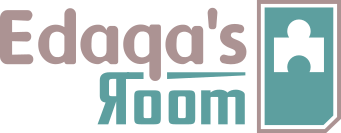
A puzzle piece quality based on language
Lingual puzzle pieces make use of the graphemes, vocalizations, syntax or semantics of a language. The use of the language is not incidental: the player must understand the language to solve the puzzle.
Live Examples:
Lingual qualities do not need to be based on "real" languages. The puzzle itself can require the player to decipher the meaning of a fantasy language.
Many puzzles use elements of language where the language itself is replaceable. That is, the player doesn't need to understand the language to solve it. Those pieces are said to have a pseudo-lingual quality, rather than a lingual one.
For example, complete both of these sequences:
The first requires English knowledge to both deciper the sequence and provide the next item. The second however requires no knowledge of English to solve. The "dog" aspect could have been replaced with any random word, symbol, or sound, for example "狗, 狗狗, 狗狗狗, ?" or "🐕, 🐕🐕, 🐕🐕🐕, ?"
It's possible that a puzzle combines linugal and pseudo-lingual elements. Look at the following example:
The text of the language is English, and it provides a clue to the answer. That text could not be replaced with another quality. The answer however is encoded as capital letters, which is not a true lingual quality, but a pseudo-lingual one. The capitals could have been replaced with a different font, colour, or otherwise.
The use lingual puzzle pieces requires the players understand the language being used. Increasing the complexity of the language used can exponentially increase the challenge for non-fluent speakers of a language.
There's a difference between replacement and translation. The previous "one, two, three, ?" example could be written in French as "un, deux, trois, ?". That is still a linguistic puzzle, requiring the player to understand French instead of English.
In many cases translation of a puzzle piece doesn't fundamentally alter the puzzle. The sequence example could reasonably be translated to any language. By contrast, crossword puzzles, riddles, and rebus puzzles are deeply tied to their source language. Translating them would essentially be creating a new puzzle.
If you have any questions, need an example, or want clarification, then let me know. Ask on Discord or Twitter.
Assume everything in this reference is a working draft, there's prone to be some mistakes and inconsistencies. I figure it's best to publish and get feedback rather than write for years in secret. The terms will change, the structure will shift, and the bugs will be chased out. It'll take a while.